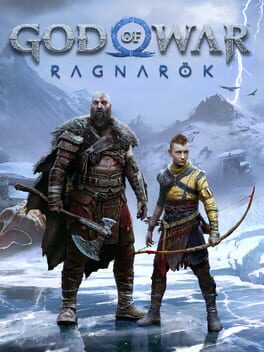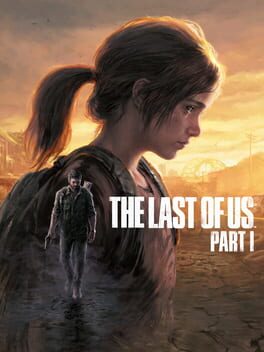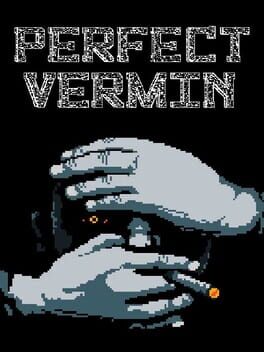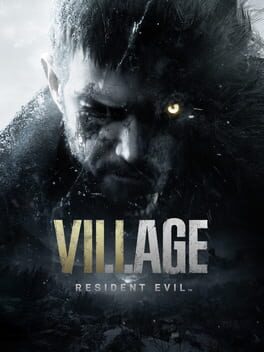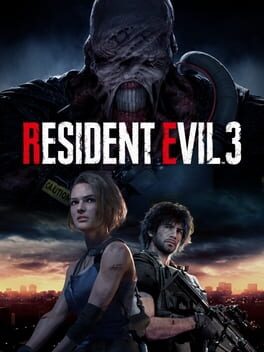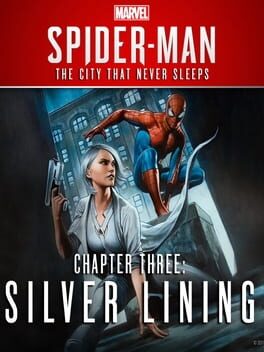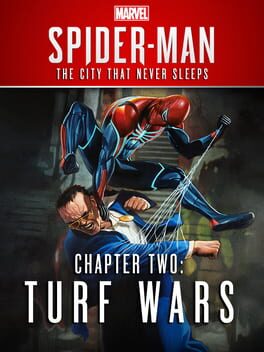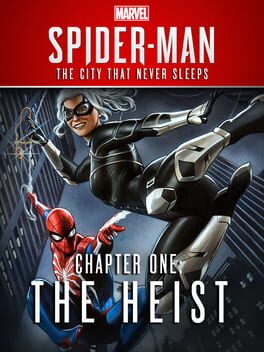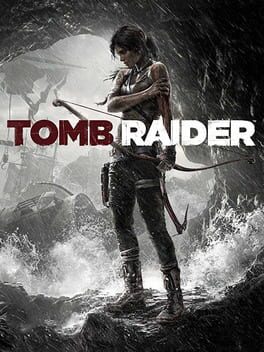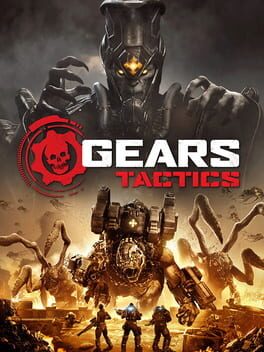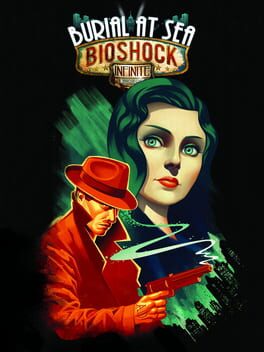ImmortanJones
2022
I think they should be terrified of you.
It's about hate. It's about revenge. It's about loss, regret, violence, trauma, guilt, fear, pain, death, hopelessness, zombies, dismemberment, war, action, stealth, decay, faith, growth, renewal, regression, absolution, friendship, family, loneliness, kindness, nature, nurture, hope, acceptance, consequence, love...
It's about just about everything. It's overwhelming. It's the most affecting interactive experience I've ever had. I hate it. I love it. I want it to stop. But I never want it to end.
It's about hate. It's about revenge. It's about loss, regret, violence, trauma, guilt, fear, pain, death, hopelessness, zombies, dismemberment, war, action, stealth, decay, faith, growth, renewal, regression, absolution, friendship, family, loneliness, kindness, nature, nurture, hope, acceptance, consequence, love...
It's about just about everything. It's overwhelming. It's the most affecting interactive experience I've ever had. I hate it. I love it. I want it to stop. But I never want it to end.
The game so nice, they made it twice! Honestly, it was inevitable that the title an overzealous journalist once referred to as "gaming's Citizen Kane moment" would become a lightning rod for the most obnoxious people on the Internet. You know who you are, don't be shy! While The Last of Us certainly isn't a Wellesian masterpiece, it is a Druckmannian masterpiece, which is just as good if not better. The Last of Us has a story to tell, something to say about the human condition, and it doesn't pussyfoot around with bullshit player agency or time-consuming open-world checklists. It's a polished experience that knows when to give the player control and when to take that control away; an experience of unmatched visual presentation and aural splendor. (Troy Baker and Ashley Johnson are giving better performances here than the entirety of the games industry has in its near 50-year existence.) This whole campaign of negativity spurred on by people with anime avatars and games with titles like "Boku No Wife's Boyfriend" as their favorites is a massive psy-op and if you don't believe me, check the profiles of everyone giving this remake anything less than three stars. The Last of Us is an unparalleled interactive experience that looks finer, plays better, and hits harder than it did now that it's been brought up to the standard of its magnificent sequel. There isn't much more to say that hasn't been said by myself or others already. The wizards at Naughty Dog perfected perfection. Get Druckmannized.
2020
"No one will care about my death if I can't prove to them that I lived."
A bite-sized piece of surreal horror that sees you wielding a sledgehammer in an office high-rise with reckless abandon until, eventually, you find a chair that bleeds. Visual direction and sound design are playful and crunchy, the act of destroying the sets you are placed in is itself a joyous catharsis that will quickly become a panicked rush to save a dying man from a game of Prop Hunt in ever-increasing rooms of uncertainty. A melancholy fantasy about turning a life of inaction into one of constant action. The cancer wasn't just within.
A bite-sized piece of surreal horror that sees you wielding a sledgehammer in an office high-rise with reckless abandon until, eventually, you find a chair that bleeds. Visual direction and sound design are playful and crunchy, the act of destroying the sets you are placed in is itself a joyous catharsis that will quickly become a panicked rush to save a dying man from a game of Prop Hunt in ever-increasing rooms of uncertainty. A melancholy fantasy about turning a life of inaction into one of constant action. The cancer wasn't just within.
This review contains spoilers
Resident Evil: Village unwisely pulls a page out of the Saw handbook and attempts to reconcile the completely bug-nuts inconsistencies of Ethan Winters' adventures, all the while establishing a new status quo for the heroes of the previous games in this expansive franchise so we're not left scratching our heads when Chris "Boulder Fist" Redfield crosses paths with... with Gravedigger and Magneto's bastard Untermensch? Or Gen Z's latest vampiric mommy fetish? Regardless of how unexciting the "revelations" and "retcons" of Village are, it rarely stumbles when it comes to the horror half of its survival-horror roots - a tall order for a game whose direct inspiration is Leon S. Kennedy's Spanish Suplex Simulator. You think you know fear and then Village throws a giant cannibal fetus at you in the middle of Resident Evil's equivalent of an escape room. The designers at Capcom have really outdone themselves! The writers, not so much.
2018
This review contains spoilers
God of War has one of the most satisfying final boss battles in recent memory, a technical showcase that cares as much about the characters involved as it does the larger-than-life fisticuffs capable of shattering worlds. The phase change where Baldur absorbs the fires of the Blades of Chaos while Freya uses the reanimated corpse of a dead stone mason to catapult our heroes into the stratosphere only for those same heroes to - after hours upon hours of estrangement, bickering, argumentation, and grief - finally synchronize and overcome their differences to launch a volley of attacks on their aggressor while hurtling through the skies of Midgard that ends in button-mashing fury to the eclectic sounds of Bear McCreary strumming lightning fast notes on a hurdy-gurdy, requiring the player to pull out every moveset in their expanded arsenal to defeat the god that feels no pain?
Santa Monica Studio shook up a formula that had been waning for them over the years, but they never lost that drive to push spectacle to its limits, all the while refining their presentation to a point that - all this time later - I still feel chills when I think about this breathtaking rollercoaster ride that redefined its series for a generation of new players.
Santa Monica Studio shook up a formula that had been waning for them over the years, but they never lost that drive to push spectacle to its limits, all the while refining their presentation to a point that - all this time later - I still feel chills when I think about this breathtaking rollercoaster ride that redefined its series for a generation of new players.
2020
This review contains spoilers
Jill Valentine, the undisputed master of unlocking, takes the reigns in this concussive horror-action thrill ride that blows the fucking pants off Resident Evil 2 in terms of sheer explosivity. It only takes two levels until you're outfitted with a multi-purpose grenade launcher, head-cleaving shotgun, and enough ammunition to put Robert Kendo to shame. A (literal) blast from start to finish that could have used more Nemesis encounters to really sell you on the game's "Terminator meets George A. Romero" aesthetic. Like, cool, he's got a bazooka, but also the bitch can't even swim?
This review contains spoilers
Not hitting the same highs as the core game, not hitting the same lows as the previous DLC adventures. Silver Lining bravely asks: "Are throwback mafia dons with indestructible exoskeletons cool?" The answer is and always will be "it varies," however, it's par for the course when it comes to the antics of everyone's friendly neighborhood web-head. The dynamic between Peter and Sable shines through here, easily the best character writing of the DLC campaigns, though the length of the add-on does truncate their development somewhat. It almost makes the endless barrage of repetitive combat encounters worth enduring. (You know me, I'm all abou that sweet-sweet NARRATIVE DIRECTION.) Regardless, after Turf Wars, it's nice to end on a (relative) high note. Felicia's back, too!
A regression from the varied gameplay encounters of the base game (that thankfully axes the Mary Jane "stealth" missions), Turf Wars feels like it was written and designed by an entirely different team, a team whose primary goal seems to be numbing the player with tedious combat arenas and side activities to the point where they mindlessly nod along to the overt copaganda. Replete with a cliche-ridden checklist of revenge tale mainstays, this second chapter in the expanded Spider-Man saga does little more than irritate and baffle, oftentimes simultaneously, and it doesn't even have the decency to include more of Black Cat. Shameful.
Unsurprisingly, as an "expansion," this falls flat throughout its entirety, not iterating upon the core game in meaningful ways and barely - barely - justifying its outright anemic narrative. The City That Never Sleeps should have been a side quest that evolved over the course of the main game rather than a piece of the experience that was carved out and repackaged as overpriced season pass guff not even six months after the title's release. I like Felicia Hardy as much as the next red-blooded coomer, but come on... be greater.
2018
2013
Over time I seem to have compartmentalized how this origin story needlessly brutalizes its characters, sometimes in service of the hackneyed narrative but mostly in an attempt to slather Lara Croft's journey from wide-eyed idealist to hard-edged "survivor" in a layer of faux maturity that pokes at ultra-violence with all the gravitas a triple-A adventure of this scale can muster. It will never not be ridiculous that this game features a cutscene where Lara breaks down after shooting a man's scalp clean off his dome only to immediately turn around and clear out a shooting gallery of nameless crazies without batting a teary eye. Ignoring all narrative context, however, Tomb Raider is a bop. Uncharted-lite gameplay with a large focus on bow and arrow combat (as was the style at the time) with aesthetic flourishes ripped directly out of The Descent. Not super complex, not super challenging, just the right amount of levity in gameplay that is severely lacking in its overwrought story. Square Enix are cowards for not making Sam and Lara a couple. Lara literally bridal carries Sam down from the top of a goddamn mountain. Cowards.
2020
Nothing funnier than an army of brick shithouses slamming into cover so hard they knock around the few physics-based objects on the map. Ukkon might pose a more immediate threat to the soldiers of the COG, but the long-term effect of scoliosis is the unspoken danger that looms over the Gears and their hunched over crouch runs.
2022
The perfect companion piece to Disco Elysium and not just because of their stylistic similarities. Where ZA/UM's unapologetically cerebral point-and-click RPG challenges the player by constructing an identity around their successes and failures, Citizen Sleeper challenges the nature of the player's identity - their avatar, their Sleeper, a lens through which to view the interactions on a starport in decline. Both games have rich world-building, a sense of imminent collapse, but through it all, the human spirit - our drive - pushes on, past what we once thought impossible, creating something remarkably poignant yet altogether unfamiliar. In short, the political text-based dice roll games made me cry. A humbling experience.
The first half of this BioShock Infinite apology tour leaves much to be desired. As a staunch fan and defender of the core game's narrative despite its rampant flaws, Burial at Sea: Episode One seems content to make sure the BioShock critic of every stripe is dumbfounded and disappointed. Can I safely say this is Ken Levine's The Rise of Skywalker? I'll need to play the second part before I hand down that guilty verdict. Regardless, much of the problems from the base game carry over here: laborious FPS arenas, lacking level design, and the added bonus of copious 'member berries for fans of the original BioShock, all tied together into a narrative that undercuts BioShock Infinite's ending and adds more fuel to the fire for anyone with a negative disposition towards that game anyway. If I wasn't just coming off of revisiting BioShock Infinite, I'd probably call this expansion "perfectly cromulent." It isn't, however. It is remarkably worse.
